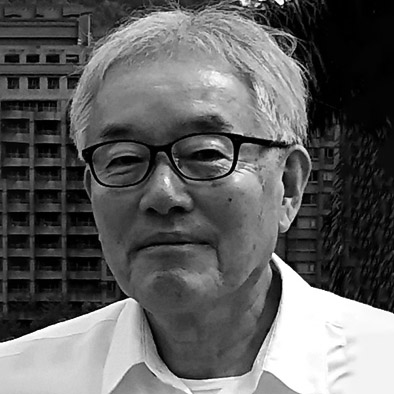Moderator and Panelist

Ven. Satoru Kiyosawa
清澤 悟 師
Session 1
"Global Compact"
Panelist
Curriculum Vitae
1947 Born. 1970 Kyoto Univ. Architecture Dept. 1972 Gdaduate School of Archi. Kyoto Univ. Urban Design. 1977 Ulbright Grantee: Univ. of Pennsylvania. Urban Design. 1990 Succeeded Gantokuji. 2008 Chief- Adviser: Ceremonial Dept. Kyoto Higashi-Honganji.
Abstract
* Intention
To attain the goals proposed in GC and SDGs, which are about [human-rights], [labors], [environments[, [justice] and [sustainability] for the society, we will need the two-way approach which are the real-social attempts and the spiritual-religious ones.
Here as for the later spiritual-religious attempts, I would like to propose two Buddhism key-words, [知足TARUWOSIRU] and [自然法爾 JINENHOUNI] and the practical movement [民芸 MINGEI].
* Proposal summary
To attain the goals proposed in GC and SDGs, which are about [human-rights], [labors], [environments[, [justice] and [sustainability] for the society, we will need the two-way approach which are the real-social attempts and the spiritual-religious ones. Especially for the spiritual-religious attempts, the religion will be able to contribute a lot.
In Japan the religion has been taking an important part to cultivate peoples’ domestic spirits, believes, ways of thinking and lives. Especially in its long history Shinto and Buddhism are taking very important parts. In modern era 鈴木大拙DAISETSU SUZUKI great professor and scholar studying Buddhism named this Japanese spiritual characteristic as NIHONTEKI REISEI 日本的霊性 formed by ZEN-SHU and JODO-SHU/JODO-SINSHU which were rooted deeply into ordinary mass-Japanese since KAMAKURA-era, 12th century. In these two Buddhism groups’ teachings we can find key words which can contribute to GC・SDGs, [知足TARUWOSIRU] in Zen and [自然法爾JINENHOUNI] in JODO-SHINSHU.
Zen was established here by 栄西EISAI and 道元DOGEN at that time. And its teachings were rooted deep into Japanese’ way of thinking and life. To cope with dealing [煩悩B- ONNOU] that is main theme for Buddhism reach the ground of [知足TARU-O-SIRU] meaning “ I feel completely satisfied with present situation and seeking nothing more”. To admit this ground cultivated such attitude of simplicity, modesty, saving, moderation and humbleness which are very common among Japanese and very important attitude directly linked for social fairness, environmental protection and modest consumption of energy acclaimed in GC・SDGs.
Succeeding 法然HONEN'S 浄土宗JODO=SHU, 親鸞SHINRAN established 浄土真宗JODO-SHISHU in KAMAKURA-era. It has been occupying big part of ordinary peoples’ mind because of its simplicity and inclusiveness.
One important teaching words are [自然法爾JINENHOUNI] which means whole dep-
endence on [他力TARIKI] and AMIDA, supreme-existence, dumping selfishness and admitting present situation satisfied. This spiritual-ground cultivated such attitude of harmony, thankfulness, diligence, obedience and cooperation which are also very common among Japanese and very important attitude directly linked for social fairness acclaimed in GC and SDGs.
In modern times, such very traditional historical Japanese’ spirit and way of life had been overwhelmed by Western culture rapidly and been declining.
In early 20th century MUNEYOSHI YANAGI, great intellectual, cautioned this decl- ining in both real-social and spiritual side. He picked up and acclaimed [一遍 IPPEN] whose attitude of no-interests for properties [捨て聖 STEHIJIRI] as an very important way of life. And in real-social side, he insisted the concept of [民芸 MINGEI] which is a very traditional Japanese handicrafts as the ideal labor-success created through real-social and spiritual-religious labors. He found there craftsman’s very diligent and religious attitude relying on TARIKI. So [民芸 MINGEI] are always beautiful, healthy, anonymous, vernacular[土徳 DOTOKU], strong and sustainable. Those characters are exactly fit to the concept of GC・SDGs in terms of labor, justice, environment and sustainability.
Thus we, related to spiritual and religious side, again have to make efforts to persuade those very special Japanese spirit, attitude and way of life traditionally being succeeded historically, which are apt to be considered “negative” in present very selfish and offensive world, as the most important and urgently-needed now.
